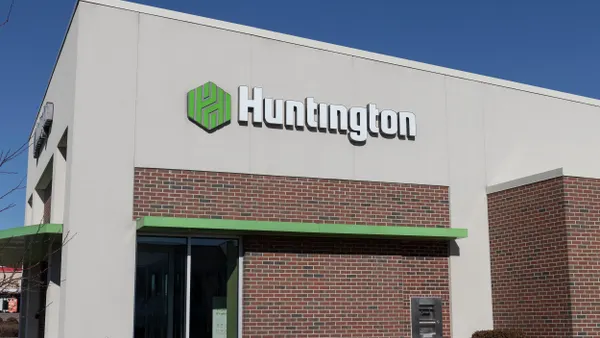LAS VEGAS — There's a great irony when it comes to banking cannabis businesses, John Vardaman, general counsel and chief compliance officer at Simplifya, said during a presentation at Money20/20 on Sunday. Cannabis's status as a federally illegal substance has made it the most transparent business to bank, he said.
"The cannabis industry is one of the most regulated industries in the country, which puts a real burden of compliance on these businesses," Vardaman said during a panel on cannabis banking compliance. "And that's a real benefit for banks. More regulations means more information, and more information means more transparency."
The number of fintechs that have sprung up to address the challenges associated with the industry, from seed-to-sale tracking to point-of-sale systems, means there is a wealth of data and information for banks that enter the space, Vardaman said.
"The cannabis industry can become the most transparent industry for banks, because you have more details available into their activity than any other business," he said. "When banks become aware of that, they can use it to their advantage."
While many financial institutions are still hesitant to open accounts for pot-related businesses, Vardaman said he expects big banks will enter the space if the Secure and Fair Enforcement (SAFE) Banking Act, which would create protections for those banks, passes in the Senate.
The House approved the bill last month with bipartisan support. But passing the Republican-controlled Senate represents a tougher task.
"That bill may be just enough for some of these larger financial institutions — which I guarantee you are eyeing this industry very closely — to say, 'That's enough for us to get in,'" Vardaman said. "So keep an eye on the big banks if this does go through."
Although the "big banks" are still on the sidelines of the cannabis banking space, smaller financial institutions like Salem, Oregon-based Maps Credit Union have been servicing the industry since 2014.
Rachel Pross, chief risk officer of Maps, took the stage to share how her credit union navigates the regulatory hurdles and risks associated with the industry.
To eliminate conflict of interest, Pross said her compensation is not directly tied to the performance of the credit union's cannabis business portfolio, which makes up about 7% of its business.
Pross, who testified in front of the Senate Banking Committee on banking pot-related businesses in July, said it's important for financial institutions to recognize the volatility of the industry.
Maps Credit Union chooses not to lend any deposits that come from its cannabis entities, as federal policies regarding the industry could change without warning, or as Pross put it, "with a tweet."
Addressing the regulatory complexity of the industry, Richie Thorne, adviser of regulatory programs at Dama Financial, issued a call to action for the nation's regulators.
Thorne, who worked in the Federal Reserve System for 18 years, said it was time the agencies issued a unified statement on cannabis banking, similar to when the Office of the Comptroller of the Currency, the Federal Deposit Insurance Corp. and the Fed issued guidance on managing concentrations on commercial real estate lending during the height of the financial crisis.
"There is a big need to have an interagency policy statement that’s issued by the regulators," he said. "I think that's the next step that needs to happen. … You really shouldn't have two banks in the country, or two banks in the same state that have the same level of risk, but different primary regulators who have different supervisory expectations. It just isn't right."













